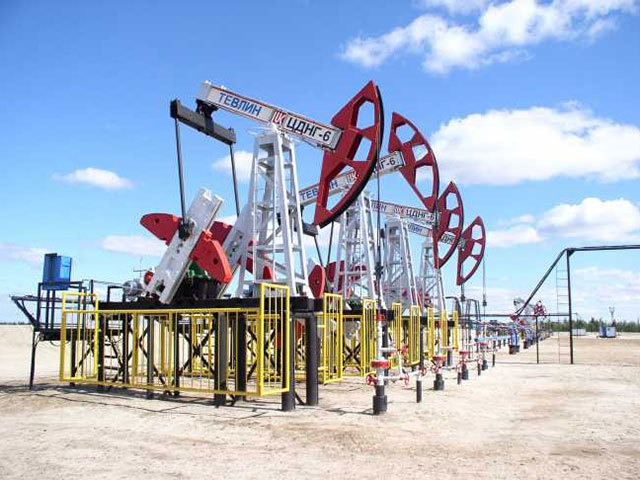
Oil tumbled as Saudi Arabia cut the cost of its crude to the U.S., deepening a selloff that sent prices to a three-year low. Bonds advanced, while U.S.-equity index futures declined.
West Texas Intermediate crude slid 2.6 percent to $76.75 a barrel at 6 a.m. in New York, after reaching $75.84. The yield on 10-year German bunds fell four basis points to 0.81 percent and Italy’s rate dropped four basis points to 2.38 percent. Standard & Poor’s 500 Index futures both slid 0.2 percent and the Stoxx Europe 600 Index lost 0.1 percent. Japan’s Topix index jumped 2.6 percent to a six-year high.
Oil prices fell into a bear market last month as global demand growth slowed and supplies swelled from producers outside OPEC, with the U.S. pumping at the fastest pace in more than three decades. Declining commodities prices are contributing to slower inflation around the world, helping preserve the value of fixed payments on bonds. Alibaba Group Holding Ltd. will report earnings before U.S. markets open.
“The focus for OPEC is really the U.S. market where the biggest source of new supply is coming from,” Ole Sloth Hansen, an analyst at Saxo Bank A/S in Copenhagen, said by e-mail. For consumers, “the continued fall in oil prices has become an early Christmas present,” he said.
WTI fell as much as 3.7 percent to the lowest price since October 2011. Brent for December settlement declined as much as 3.2 percent to $82.08 a barrel on the London-based ICE Futures Europe exchange.
State-owned producer Saudi Arabian Oil Co., or Saudi Aramco, lowered the premium for Arab Light relative to U.S. Gulf Coast to the least since December.
Silver for immediate delivery dropped 1 percent to $15.9885 an ounce in London trading. The price retreated for a fifth day, the longest run of losses since November last year.
Italian bonds rose with German securities, pushing the 10- year yield three basis points lower to 2.39 percent. The rate on Ireland’s debt of similar maturity declined three basis points to 1.75 percent as the nation was said to begin a sale of 15- year securities via banks.
Treasuries show inflation expectations are falling in 2014 by the most in three years. The difference between yields on 30- year debt and similar-maturity Treasury Inflation Protected Securities, a gauge of expectations for consumer prices, was at 2.08 percentage points today. The spread has shrunk 27 basis points in 2014, the most since 2011, and declined to 1.99 percentage points last month, the least in three years.
Oil companies led declines in Europe, with Total SA, BP Plc and Royal Dutch Shell Plc each losing at least 1.7 percent.
Hugo Boss AG fell 6 percent, posting the biggest decline in the gauge, after lowering its full-year targets for sales and operating profit. The fashion company cited a slowdown in European demand.
The MSCI Emerging Markets Index fell for a second day, slipping 0.2 percent, led by commodity producers and technology shares.
A gauge of Russian company securities trading in London fell for a second day, dropping 1.5 percent. The yield on the government’s September 2023 dollar bond rose six basis points to 5.02 percent. Markets in Russia were closed for a public holiday.
Ukraine’s July 2017 Eurobond declined, sending the yield four basis points higher to 14.11 percent, extending yesterday’s 68 basis-point increase.
Ukrainian President Petro Poroshenko will convene a meeting of Ukraine’s National Security and Defense Council at 5 p.m. today to consider revoking the “special status” law that was part of the truce accord struck Sept. 5 in the Belarus capital, Minsk.
The Hang Seng China Enterprises Index of mainland companies listed in Hong Kong gained 0.6 percent, while the Shanghai Composite Index was little changed. China plans a $16.3 billion fund to finance construction of infrastructure linking domestic and overseas markets, according to government officials who participated in drafting the plan.
Recommended for you
